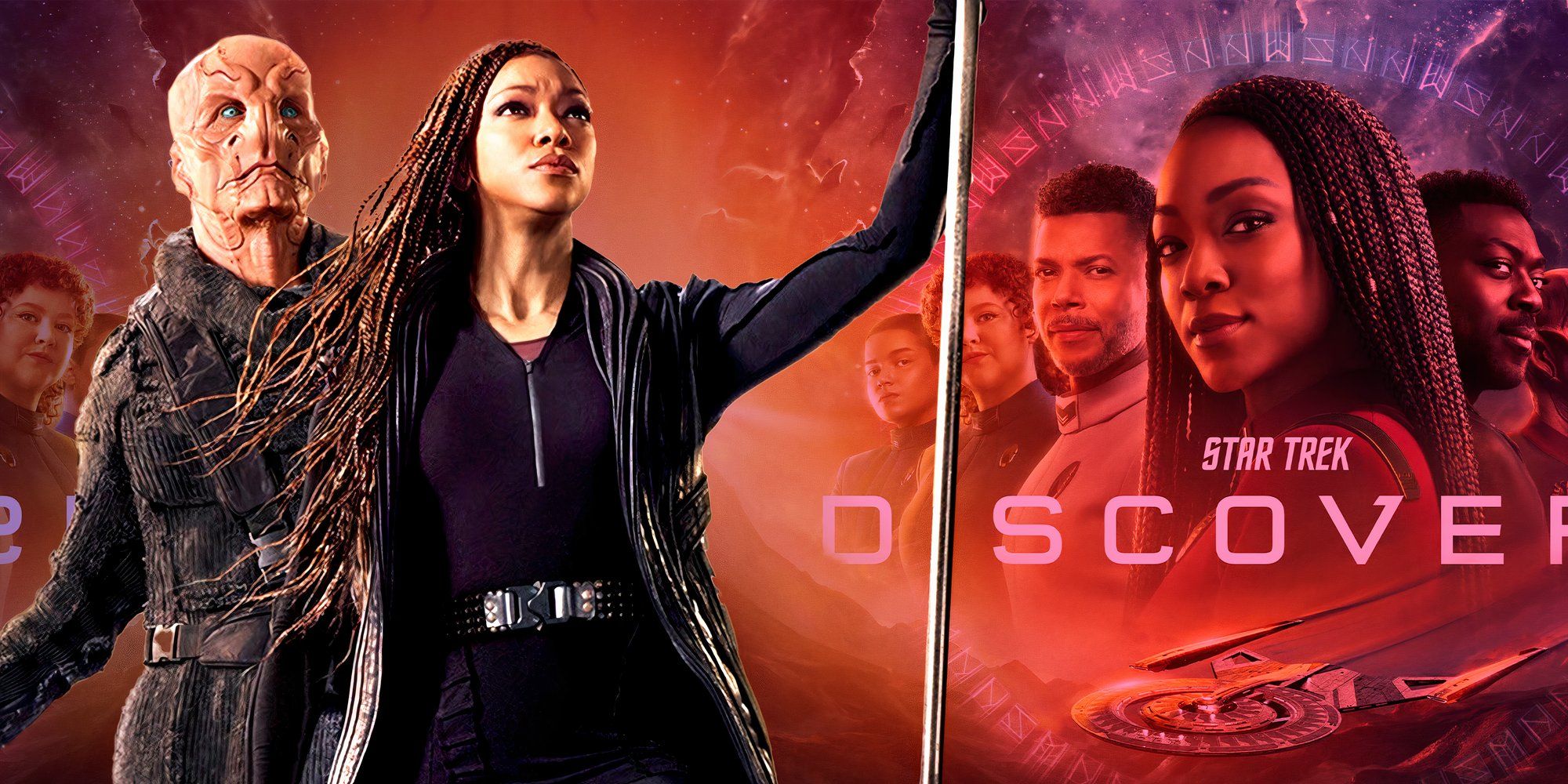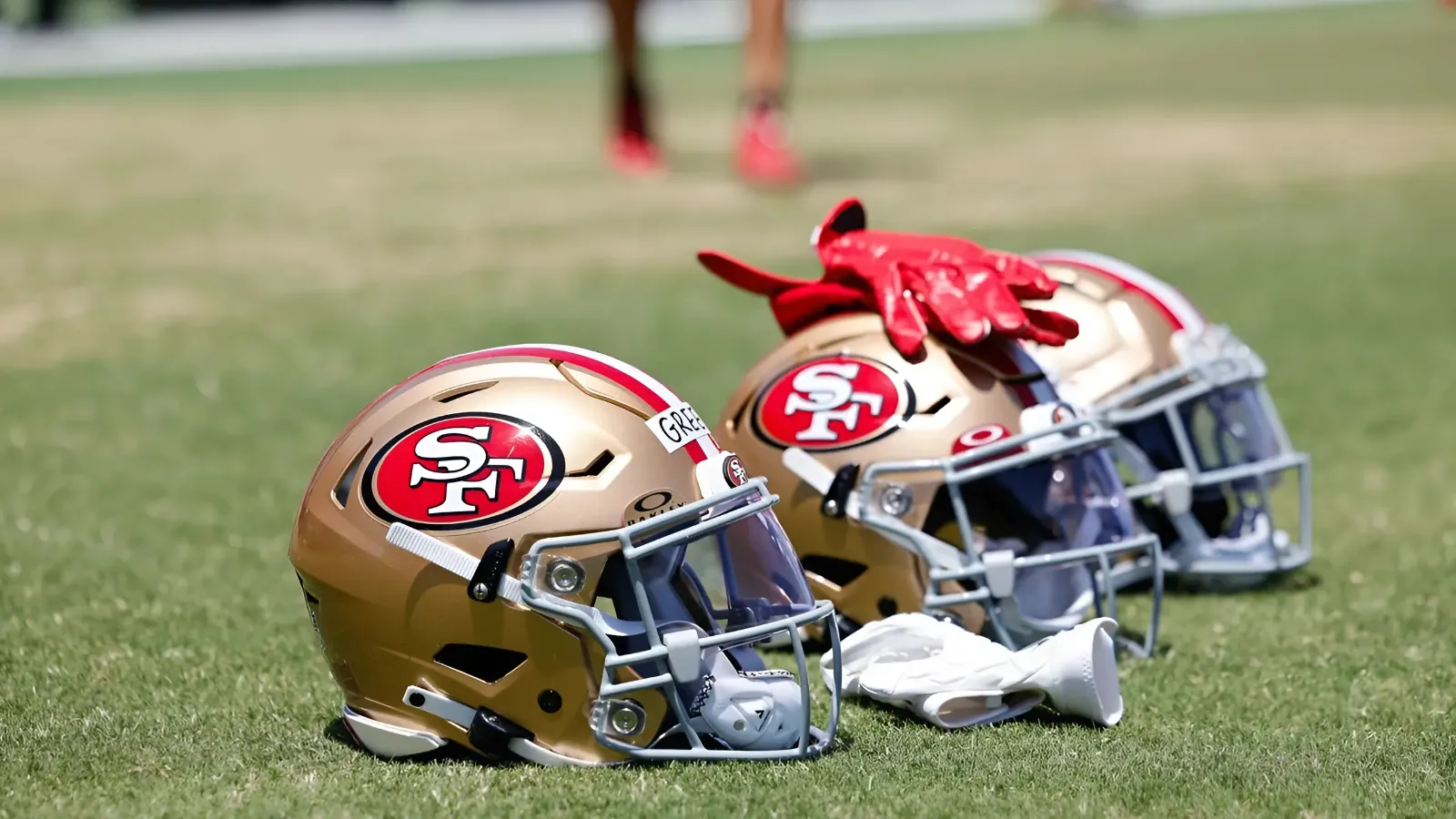Summary
- Each season of Star Trek: Discovery had highs and lows, with season 2 being the most cohesive and well-executed.
- Season 3 made a bold move by shifting to the 32nd century, setting the stage for new characters and storylines.
- Although season 5 had some missteps and wasn't meant to be the finale, it delivered impressive storytelling and a moving end.

With the conclusion of Star Trek: Discovery's fifth and final season, a clear quality ranking of all the show's seasons emerges. Discovery was the first Star Trek TV show to air on Paramount+ starting in 2017, and has accomplished a lot for the franchise in the seven years it has been on the air. As the first modern Star Trek series since the end of Star Trek: Enterprise in 2005, Discovery began a new era for the franchise, making it possible for other shows like Star Trek: Strange New Worlds or Star Trek: Picard to even exist.
Although Discovery experienced ups and downs, it was able to churn out a creditable five seasons in seven years. Many of the additions Discovery made to the franchise, such as new technology like the spore drive, or the half-dozen explicitly LGBTQ+ characters the series created, have unequivocally made Star Trek a richer, more interesting universe. However, like all Star Trek TV shows and movies, some aspects of Discovery were better than others, something that is even more clear now that season 5 has completed its run.
5 Season 4
"Love always ends in grief, but we can't let the pain do this to us."
Partially through no fault of its own, Discovery season 4 didn't reach the same caliber as some of the show's other seasons. On paper, season 4's premise was interesting, as Captain Micahel Burnham (Sonequa Martin-Green) and the crew of the USS Discovery worked to find out the origins of the DMA. This massive dark matter anomaly seemed to have no conscious will and was systematically destroying Federation planets. The destruction of Cleveland Booker's (David Ajala) home planet Kwejan served as the season's biggest emotional gut punch, and season 4 introduced some interesting characters like Ruon Tarka (Shawn Doyle).
However, the story overall wasn't cohesive, thanks to the fact that season 4 was filmed at the height of the COVID-19 pandemic. An interrupted run and COVID set protocols necessitated some changes to the season, but Discovery's decision to make season 4's villain a metaphor for the pandemic didn't pay off the way the show had hoped. The subtext was at times a little heavy-handed, and the reveal of the DMA's operators, Species 10-C, fell a bit flat. The species themselves have enormous potential, but they weren't introduced until much too late in the season and then never explored again.
4 Season 1
"A year ago, I stood alone. I believed that our survival was more important than our principles. I was wrong."
As the show's kick-off, Discovery season 1 delivered in some areas, but not in others. The series began with a bang when then-Commander Burnham ignited the Federation-Klingon War with her mutiny against Captain Georgiou (Michelle Yeoh). However, the plot quickly got convoluted as it delved into Michael's reassignment on Discovery and then took a hard turn in the latter half of the season into the Mirror Universe. Although Discovery expanded both Klingon and Mirror Universe lore extensively, the season effectively felt like two separate shows after the jump.
Although Discovery season 1 was a rocky start, the season deserves another look now that the series is concluded.
As a counterpoint, however, Discovery season 1 is unequivocally a season that gets better upon rewatch. What was confusing on first viewing becomes clearer when the story is already understood, and it is easier to pick out the Easter eggs the show presents in earlier episodes for things that will come up later. For example, knowing that Captain Lorca (Jason Isaacs) is from the Mirror Universe gives a whole new meaning to his actions during the first half of the season. Although Discovery season 1 was a rocky start, the season deserves another look now that the series is concluded.
3 Season 5
"Last time, then. Let's fly."
Although Discovery's final season contained some stellar episodes, the fact that season 5 was never meant to be the show's last tempered its ability to create a good ending. The search for the Progenitor's technology provided an action-packed A-story, but there were moments where Discovery could have taken things further given that they would not have another chance to. For example, the absence of Saru (Doug Jones) for most of the season, and the missed opportunity to bring back Lorca in season 5's time-travel episode stood out as reminders that Discovery was canceled rather than ending on its own.
Although Discovery never reached seven seasons, it was still on the air for seven years, matching the record that was first set by Star Trek: The Next Generation and continued with shows like Deep Space Nine and Voyager.
Fortunately, these missteps were bracketed by some wonderful storytelling. Using the final season to search for the answer to the creation of life helped Discovery soar to new dramatic heights, providing a suitably impressive arc for the crew's last mission together. Episodes like "Face the Strange" or "Whistlespeak" were some of the best of the season, if not the whole series, and the epilogue at the end of Discovery's series finale was a moving tribute to the show that tied up loose ends. Although it could have done more, season 5 of Discovery was effective for what it was.
2 Season 3
"Disconnection. That's how this future began."
Discovery made some huge shifts in season 3, but ultimately hit its stride with the 32nd century time jump. Discovery left its status as a prequel to Star Trek: The Original Series behind at the end of season 2, beginning season 3 by going farther forward than any other franchise show. With the introduction of incredible new characters like Cleveland Booker and the enticing mystery of the Burn, the show broke the mold and broke it well. Despite its disappointing ending, season 3 laid the groundwork for a new Discovery that could have been a disaster if not done correctly.
With its strong ties to TOS in season 2, Discovery could have been hurt by not sticking to the brand the show had cultivated. However, the 32nd century turned out to be ripe territory for Discovery to explore. Pushing things so far forward meant bringing in aspects of the franchise that Discovery previously had no access to, and allowed the show to delve into new characters, alien races, and advancements in technology beyond anything the franchise had seen previously. It may not have been perfect, but season 3 shifted Discovery in the right direction.
1 Season 2
"Sometimes, in war, the terrible choice is the only choice."
Ultimately, Star Trek: Discovery season 2 stands out as the series' best for several reasons. The complex, action-packed plot was designed to hook viewers from the very beginning, especially with the introduction of both Captain Christopher Pike (Anson Mount) and Spock (Ethan Peck) to the narrative. The exploration of Michael's relationship with Spock was a wonderful arc that came full circle by season 2's finale, and Discovery laid the groundwork for both Pike and Spock to return in Star Trek: Strange New Worlds, which almost immediately became one of the most popular new Star Trek shows with its first season.
Overall, Star Trek: Discovery season 2 was ultimately the show's most cohesive, well-executed season
Beyond the character aspects, Discovery season 2's storyline was incredibly crafted from start to finish. The Red Angel mystery ended up becoming one of the most impressive season-long problems Discovery dealt with, and luckily never became too convoluted or confusing, even though it had the potential to be. It also provided a near-perfect explanation for the absence of the USS Discovery and her crew during the events of TOS, something viewers had been wondering about since season 1. Overall, Star Trek: Discovery season 2 was ultimately the show's most cohesive, well-executed season.



